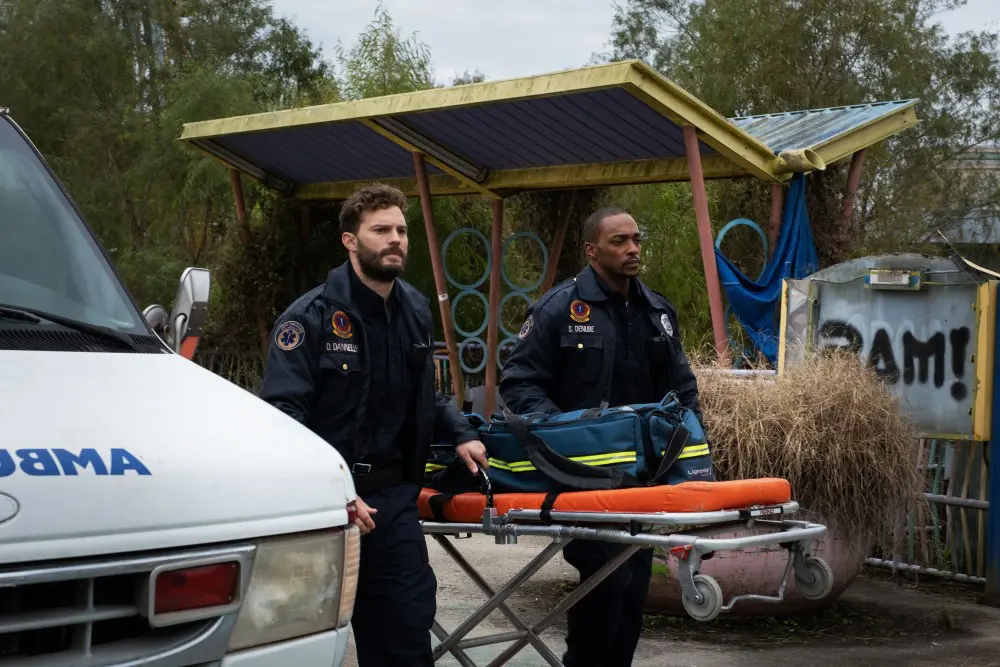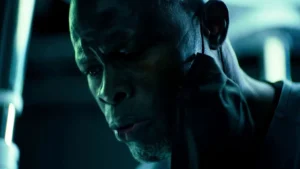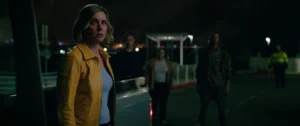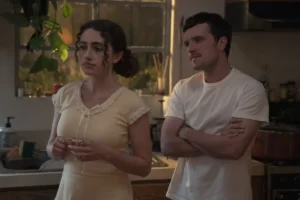Summary
Moorhead and Benson deliver another multi-genre drama with a broad scope, this time with a bigger budget and bigger cast. Afraid I miss their less mature style though.
Synchronic is a film that I’ve been looking forward to since I first heard about it just over eighteen months ago, infatuated as I am with the work of directors Justin Benson and Aaron Moorhead. So when I finally received a review screener in mid-September (two weeks before writing this), I struggled with the dilemma of whether to digest it straight away or get through more time-critical items first. I waited. It was worth the wait. Even the few minutes before the title screen had me wide-eyed and open-mouthed, almost forgetting to breathe. So I figured I should sleep on it, and see if the admiring glow settles into something a bit more balanced overnight. It has, somewhat, but I’m pleased to say that I still love Synchronic; thankfully, with a little more perspective.
The story is about Dennis (Jamie Dornan) and Steve (Anthony Mackie), New Orleans paramedics, and lifelong buddies. They pick up the pieces (sometimes literally) of a series of nasty deaths and injuries, discovering along the way a new designer drug – Synchronic – that links each of the incidents. The two friends deal with this as professionally and philosophically as they can, until Dennis’ eighteen-year-old daughter Brianna (Ally Ioannides) disappears one night, from the house where she and her friends had apparently tried the drug.
Dennis and Steve have a beautiful friendship, despite growing up into quite different lives; Dennis with a loving family, and Steve a bachelor with a dog. Dornan and Mackie were inspired casting choices, and it’s easy to forget the Fifty Shades and Marvel films both are well known for; Dornan even successfully softens his accent so much I almost didn’t recognize him as the menacing predator from The Fall. Steve evidently cares for Dennis’s family as much as he does, which is key to the second half of the film when Steve stumbles upon a way to use Synchronic to track down Brianna. Thus the first half of the film is given to establishing both the friendship and the oddities of the drug.
And mortality. Considering I was used to themes such as hope and renewal in Benson and Moorhead’s earlier films, the focus on death in the first half came as a surprise. It’s a fact of life in a paramedic’s job, mind you, so sure the guys talked about it plenty. But when a black cloud comes down on life, it can lead to a paradigm shift, a new perspective on priorities; so the hope isn’t necessarily gone for good. Synchronic turned out to be as moving, in parts, as Paddleton.
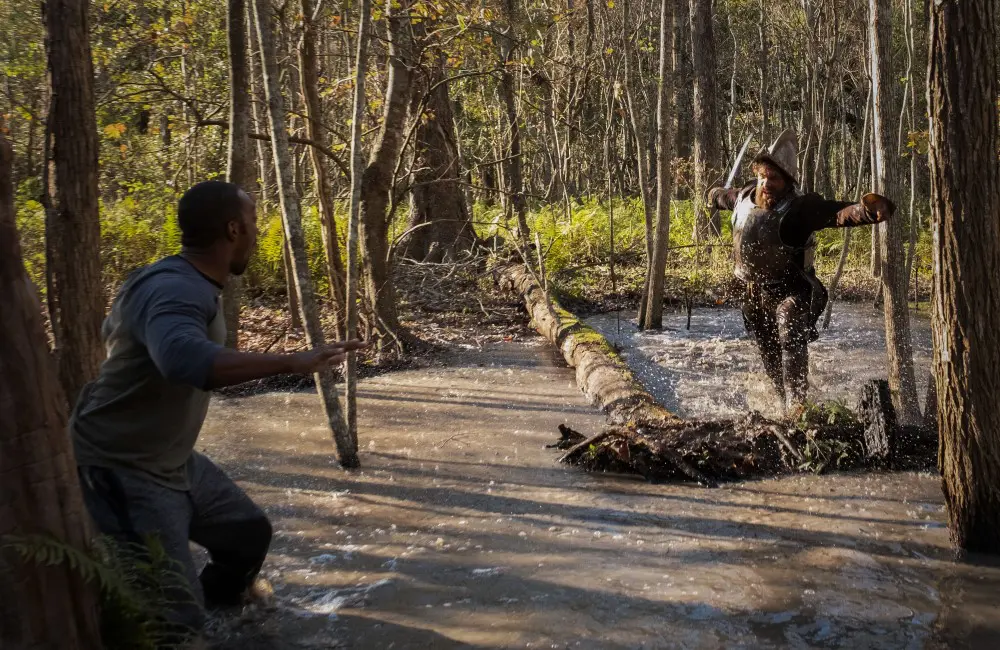
As before, the two directors had other roles too: the film was written by Justin Benson, and Aaron Moorhead did the cinematography. One of the first faces I saw was familiar from The Endless; and the music, again, came from Jimmy LaValle. But don’t expect a similar style of film to earlier titles such as Spring: this is a bigger budget, much more Hollywood, without such naturalistic acting and dialogue. I like that Benson and Moorhead can now command a bigger production, I like it a lot; and although the quality of the final product is still excellent, some of the original enthusiastic rawness has now been washed out a little, so Synchronic is very different, and yet in some ways still their style too. That’s kind of to be expected, I think, though I had to keep telling myself when I watched not to draw too many comparisons: that would be like comparing U2’s Joshua Tree album to Boy (excuse me for showing my age).
Actually, Synchronic compares better to Isaac Ezban’s Parallel (his most mature film) than any of theirs, especially as urban grit develops into physics and sci-fi. Yes: sci-fi, which I’d not mentioned (because they don’t give away even that much in the marketing blurb), but you’re bound to expect at least some in one of this pair’s films. It isn’t the hard, fully-explained type of sci-fi (there is just enough reference to science to make the plot work) but its internal logic works, and it adds a romantic ideal to some of the narrative. It also gives rise to some rather beautiful and mysterious imagery, though – unfortunately – a sentimental image too, which made me cringe a little.
So, no, Synchronic isn’t quite the five-star film I anticipated. The key reason for this comes down to the pacing difference between the two halves of the film. What I had loved about Spring and The Endless (sorry, comparing again) was the unhurried nature of the story: it takes time to get to understand real people, and in those films, the central characters were real and were given all the time to be themselves. Sure, we get to know the two paramedics during the first half of Synchronic, but via some fairly dense and lurid plot, rather than simply observing their lives or their emotional states. Then it felt as though so much time had been given to setting the scene that aspects of the second half were unexplained or given convenient shortcuts. I can accept that Synchronic is both an intelligent drama and a metaphysical romp, but my previous experience of this team’s work is that they can do better. The plot is a satisfying and neatly constructed one, but a longer film could have allowed the team to apply more of their style (well established and loved by genre fans) across its whole duration.
What the budget – and writing – does bring to this film is a keen and colorful sense of place. New Orleans is a grubby, gritty city for men in Dennis and Steve’s profession, but it also has a rich history and culture; both of which are used creatively as integral elements to the plot. We see early settlers, civil war, modern Creole influences, racial prejudice, and the impact of Hurricane Katrina. I hope Synchronic is well received in New Orleans itself, as it certainly presents a picture of a city of resilience, where hope cannot be lost for long.
So don’t get me wrong: I enjoyed Synchronic a great deal. The shine simply wore off a little overnight. I hope I’ll get the chance to see Synchronic on the big screen; I’ll certainly watch it again somehow. But the simple and patient delivery of the earlier Rustic films means that I will watch those more.

